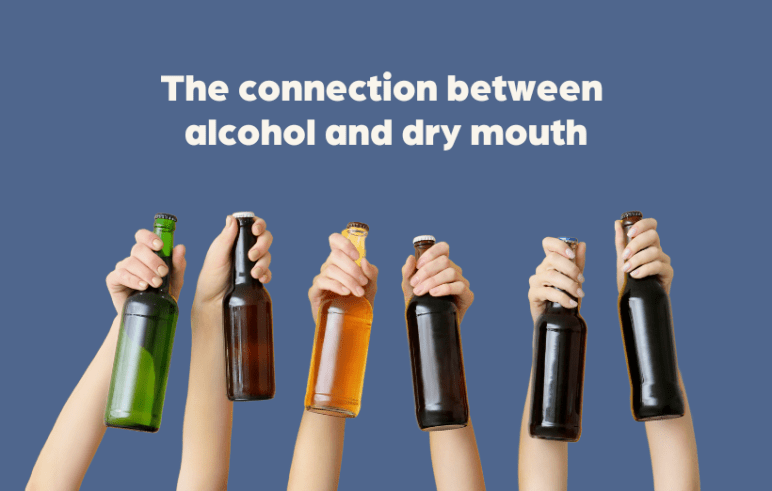FREE SHIPPING When you spend over $50
15% OFF STOREWIDE SALE Use Discount Code: SSBUNNY25
oral health information
Alcohol and Dry Mouth
2 October 2024

Alcohol is a widely enjoyed part of our social gatherings, celebrations, and even quiet evenings at home. While most people are familiar with the effects of alcohol on their mood or coordination, fewer understand the impact it can have on oral health—particularly when it comes to dry mouth (xerostomia). Dry mouth is more than just an uncomfortable sensation; it can affect your overall dental health and well-being.
Let’s dive into the relationship between alcohol use and dry mouth and explore ways to manage this common issue.
Alcohol is a diuretic, meaning it encourages the body to remove fluids through increased urination. This natural process can lead to dehydration, a major contributor to dry mouth. When you drink alcohol, the moisture in your mouth is reduced, and the salivary glands may produce less saliva. Since saliva plays a key role in keeping our mouth healthy by helping to wash away food particles, neutralize acids, and prevent bacterial growth a dry mouth can increase the risk of oral issues like tooth decay and gum disease.
Alcoholic beverages, such as spirits and wine, can exacerbate this dryness. Plus, beverages that contain high levels of sugar or acidic mixers such as cocktails can further dry out the mouth.
Beyond being uncomfortable, dry mouth can have several negative effects on oral health, including bad breath, increased risk of cavities, difficulty in swallowing and gum irritation.
Fortunately, there are steps you can take to mitigate the effects of alcohol-related dry mouth:
- Stay hydrated: Drinking plenty of water before, during, and after consuming alcohol can help counter dehydration and keep your mouth moist. Hydration not only helps combat dry mouth but also reduces hangover symptoms.
- Limit sugary and acidic mixers: Avoid sugary cocktails and mixers that can dry out your mouth further instead opt for water or soda water mixers.
- Reduce alcohol consumption: If you frequently experience dry mouth after drinking, it may be worth considering reducing your alcohol intake. Moderation can go a long way in preventing dehydration and maintaining oral health.
- Invest in oral care products designed for preventing dry mouth: Specialised oral care products such as Xerostom can help manage symptoms and protect against dry mouth.
If dry mouth persists, even when you’re not drinking alcohol, it could be a sign of a more serious underlying issue, such as certain medications, medical conditions, or lifestyle factors. Chronic dry mouth can significantly impact your oral health, and it’s important to consult with a dentist or healthcare provider to rule out any other potential causes.
While alcohol can be enjoyable in moderation, it’s important to be mindful of how it affects your body and your oral health. Dry mouth is a common side effect of alcohol consumption, but by staying hydrated, practicing good oral hygiene, and making smart beverage choices, you can minimise its impact.
Keep your oral health in check and enjoy your favourite drinks responsibly!
Recent articles

oral health information
Alcohol and Dry Mouth
Understanding the connection between alcohol consumption and dry mouth.

